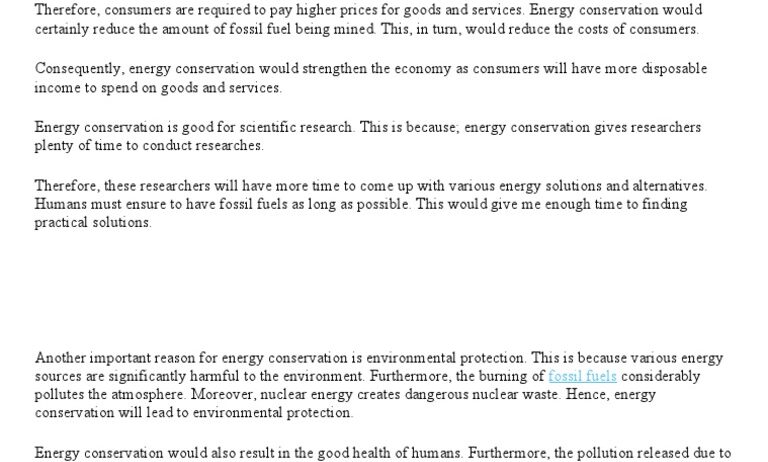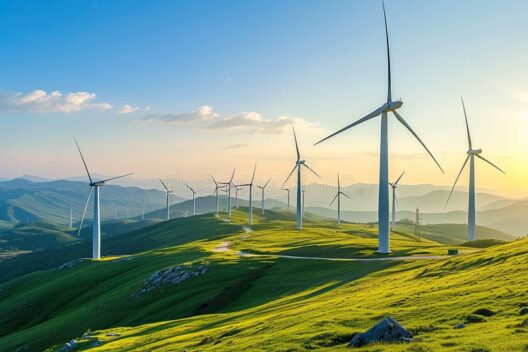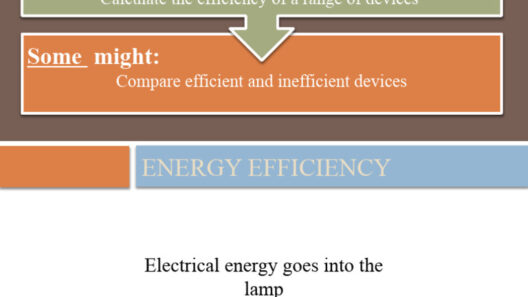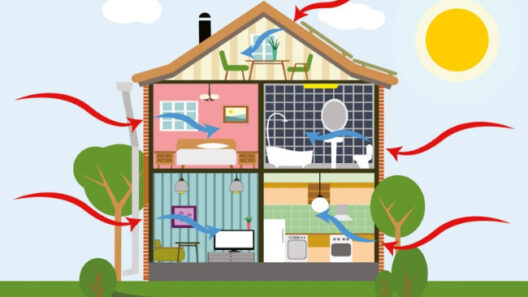Energy conservation stands as a pivotal principle in the quest for sustainability, intertwining with our broader environmental responsibilities. To pose a playful question: What if you could turn down the thermostat on climate change while simultaneously reducing your energy bills? Sounds enticing, right? Yet, this presents a formidable challenge: fostering a culture of energy conservation amidst rampant consumerism and the insatiable demand for energy. To unpack the importance of energy conservation, it is crucial to understand its implications for our planet, economy, and individual lifestyles.
Understanding Energy Conservation and Its Impact
Energy conservation refers to the practice of using less energy by altering personal habits and employing more energy-efficient technologies. At its essence, it promotes the efficient use of resources to minimize waste and reduce carbon footprints. But why does this matter?
First and foremost, energy conservation directly contributes to the mitigation of climate change. As anthropogenic activities continue to escalate greenhouse gas emissions, the urgency for impactful strategies becomes apparent. By reducing energy consumption, we can diminish reliance on fossil fuels, which are often at the root of greenhouse gas emissions. The less we consume, the fewer emissions we contribute, thereby curbing the detrimental effects of global warming.
Moreover, the ecological ramifications of unrestrained energy use are substantial. Unchecked energy consumption leads to habitat destruction, air and water pollution, and species extinction. Every kilowatt hour saved is a step toward preserving ecosystems and biodiversity. In a world already facing debilitating environmental issues, energy conservation is an indispensable tool for ecological preservation.
The Economic Benefits of Energy Conservation
Transitioning to energy-efficient practices also yields considerable economic advantages. Individuals and organizations alike can realize financial savings through energy conservation efforts. Reducing energy consumption translates into lower utility bills, allowing households and businesses to allocate funds to other crucial areas. This, in turn, supports local economies by promoting spending in other sectors.
Furthermore, energy conservation drives innovation and job creation within the green technology sector. The demand for energy-efficient products and services is steadily rising, catalyzing advancements in renewable energy technologies. New job opportunities emerge in energy auditing, retrofitting buildings, and manufacturing energy-efficient appliances. A robust focus on conservation not only bolsters our economic resilience but also facilitates a transition towards a sustainable economy that embraces innovation.
Addressing the Challenge: How to Foster Energy Conservation
Despite the clear benefits, the question remains: how can individuals and communities overcome the inertia of habitual energy consumption? One comprehensive approach is education. Raising awareness about the significance of energy conservation and the practical steps individuals can take is paramount. Creating community workshops, disseminating informative literature, and leveraging social media platforms can pique interest and cultivate a culture of energy conservation.
Incorporating energy-saving practices into everyday life is essential. Simple habits such as turning off lights when leaving a room, using energy-efficient appliances, and opting for public transportation contribute to noticeable energy reductions. Moreover, individuals can adopt a mindset of sustainability by regularly assessing their energy use and seeking innovative solutions to decrease consumption.
Community initiatives also play a vital role in promoting energy conservation. Organizing local energy challenge programs can incite friendly competition among residents, spurring them to adopt more energy-efficient practices. Such initiatives can create a sense of camaraderie while fostering behavioral changes that espouse sustainability.
The Role of Technological Innovations
Technological advancements form a cornerstone of energy conservation strategies. From smart home technologies that optimize energy use to renewable energy sources like solar and wind, innovation is indispensable. The integration of smart meters allows consumers to monitor their energy consumption in real-time, enabling them to make informed decisions about their energy use. Through these technologies, energy conservation becomes an achievable goal rather than an abstract concept.
Ultimately, investing in renewable energy infrastructure can drastically reduce our reliance on fossil fuels. Solar panels, wind turbines, and geothermal systems not only lessens our ecological footprint but also promote energy independence, reducing vulnerability to energy market fluctuations and geopolitical tensions.
Each Step Counts: The Power of Individual Action
Every individual’s effort contributes to the larger narrative of energy conservation. While it may seem that personal actions carry little weight, collective behavior creates a formidable force for change. Imagine a world where energy conservation is the norm, not the exception, leading to cleaner air, preserved ecosystems, and a resilient economy.
To encapsulate, energy conservation is not merely an option; it is an obligation that aligns with sustainable living. As we face stark environmental challenges, embracing a culture of conservation is essential for our well-being and future. By understanding its importance, facilitating community efforts, and leveraging innovative technologies, we can forge a path toward a sustainable world. In the grand tapestry of life, every effort to conserve energy threads us closer to a sustainable reality.







